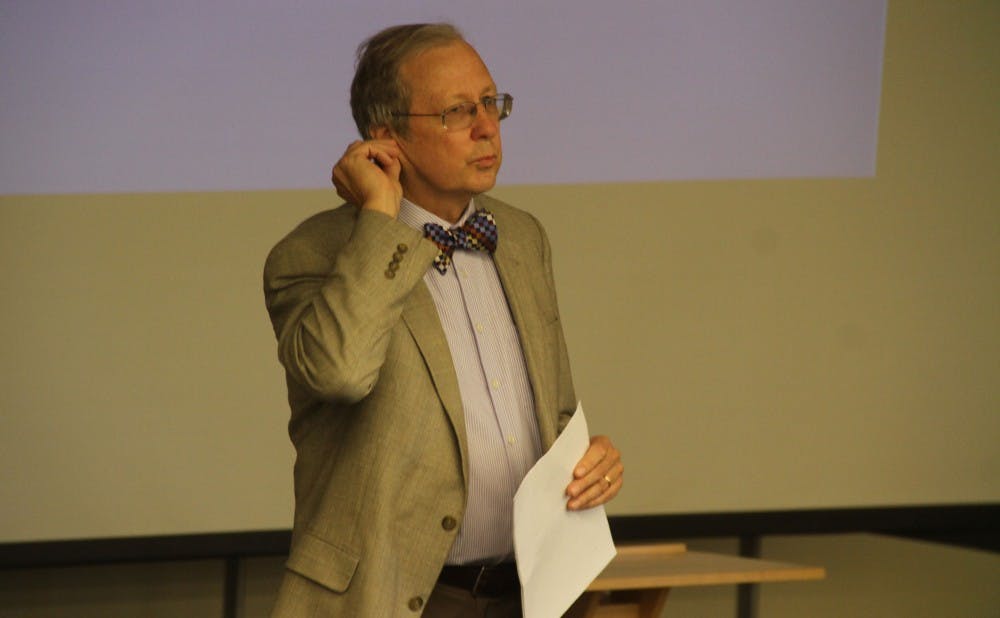The Arts and Sciences Council received updates on Duke Kunshan University and the review of Curriculum 2000 at their monthly meeting Thursday.
Six weeks after DKU opened its doors to students, Nora Bynum—vice provost of DKU and China initiatives—spoke to the council about initial feedback from students and faculty on the academic and campus experiences. Although factors such as language barriers and ongoing construction have proved to be obstacles, the overall impression of the campus is positive, she said.
"There's a lot of hustle and bustle associated with starting a new university, it turns out," Bynum said.
After years of planning and several delays, the China campus started classes Aug. 25 in three programs—graduate programs in global health and medical physics, and an undergraduate global learning semester. A master's of management studies offered by the Fuqua School of Business is a joint Durham and Kunshan program, with 33 students currently in Durham who will depart for Kunshan in January. The students in the other three programs hail from seven countries—the United States, China, Kenya, Nigeria, Singapore, Indonesia and Vietnam—with 62 students enrolled in the undergraduate program and five in each of the graduate programs.
Bynum noted that the diversity of the campus presents some challenges from faculty, particularly in regards to language. With all courses taught in English and most classes discussion-based, accommodating a range of language abilities in the classroom can be difficult, she said.
She added that she was leaving Friday on a tour of Chinese universities with other members of Duke's Liberal Arts in China Committee, in an attempt to learn more about the offerings of other schools in the region. As DKU moves through its first phase of development, the leadership team will continue to develop programming and promote the university.
One of the factors making this task complex is the balancing act required to appropriately accommodate both native Chinese students and students from abroad.
"Some aspects of a program that make it more desirable for international students make it less desirable for [People's Republic of China] students," Bynum said.
Following Bynum's presentation, Suzanne Shanahan—chair of the Imagining the Duke Curriculum committee and associate director of the Kenan Institute for Ethics—took the floor to discuss the review of Curriculum 2000. The Arts and Sciences Council officially kicked off a three-year review of the curriculum last month, determining the best way to adapt Trinity's curriculum for the current range of Duke educational experiences.
Shanahan emphasized that the committee is looking to gather input from as broad a pool as possible, inviting faculty members from all departments to contribute their thoughts. Still in its early stages, the committee is figuring out exactly how it plans to proceed.
"The overall timeline is about three years, but how we're going to get there isn't completely mapped out yet," said Lee Baker, dean of academic affairs for Trinity and an ex officio member of the committee.
In other business:
The Council introduced the several month long process of reviewing updates to its bylaws.
"The Council and the University have changed, and there are just some things that we need to do, some housekeeping, to modernize," said Council Chair Thomas Robisheaux, the Fred W. Schaffer professor of history.
The revisions discussed Thursday revolved around the Council's position within the University, as it relates to Duke's schools and institutes.
Get The Chronicle straight to your inbox
Signup for our weekly newsletter. Cancel at any time.

